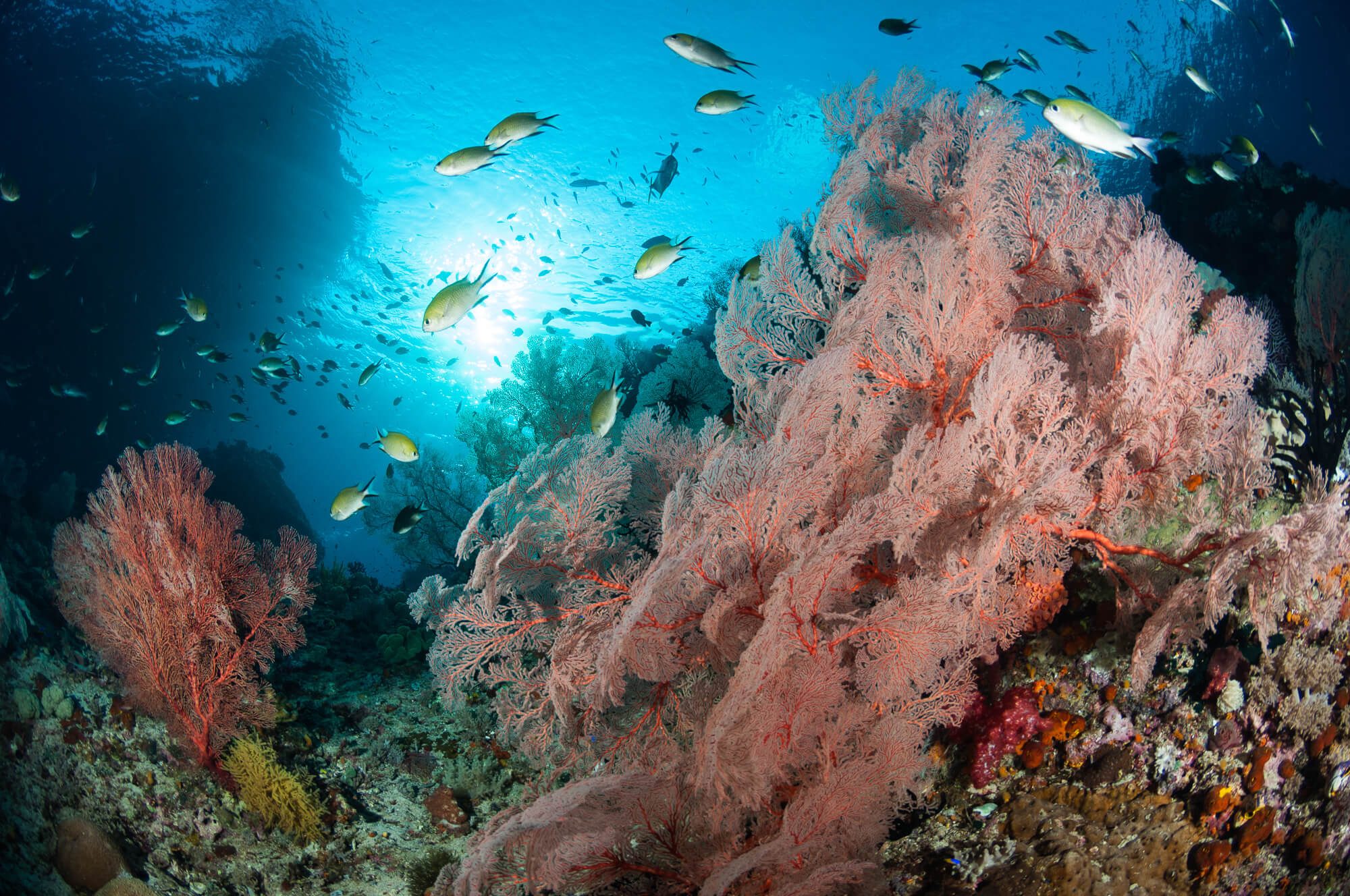What is Green Fins?
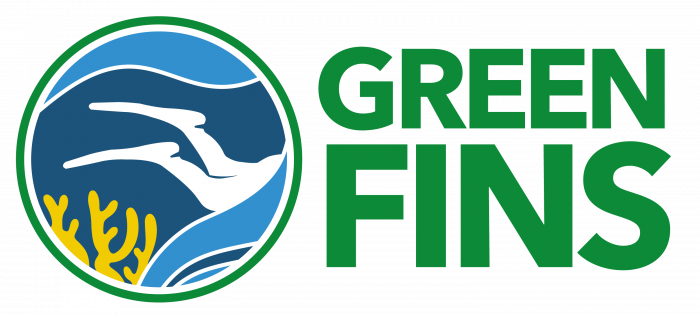
Green Fins was initiated in 2004 by the United Nations Environment Programme (UNEP) under the Regional Seas programme as part of the effort to increase public awareness and management practices that will benefit the conservation of coral reefs and reduce unsustainable tourism practices. It is now spearheaded by UK charity, The Reef-World Foundation, in partnership with UNEP.
Green Fins is a comprehensive approach that encourages marine tourism operators, local communities and governments to work together to reduce their negative environmental impacts. This is primarily done through the private sector adopting a Code of Conduct that will help mitigate their impacts when carrying out marine tourism activities.
The Green Fins Code of Conduct consists of 15 points, which target environmental threats the tourism industry poses, both underwater and on land. Green Fins Members receive tools to promote environmental education and awareness, tapping into both tourists and the diving community, which is shifting more and more towards eco-friendly initiatives due to increased consumer demand.
Green Fins dives even deeper as it creates a network through dive centres, local and national governments and communities that work together to tackle local environmental threats to protect livelihoods and food security.
There are two types of Green Fins Memberships available for dive, snorkel and liveaboard operators: digital and certified membership.
Certified Membership
Certified Members, who join for free (or pay what they can), receive annual in-person assessments, training and feedback to help them reduce their negative impact on the marine environment. The assessment process is set by a global standard and is proven to lead to a measurable reduction in threats posed by the marine tourism industry. It has been adopted by 15 countries to date (2023).
This assessment system was developed by The Reef-World Foundation using the Green Environmental Assessment Rating System (GEARS). This unique and groundbreaking technique for monitoring threats from the scuba and snorkel tourism industry has been in action since 2008 and has had effective and successful results. You can see more on this Assessment process in the scientific paper published in Ocean and Coastal Management in July 2013. Reef-World is the only organisation able to carry out the training of new Green Fins Assessors to maintain industry-wide standards.
Green Fins is managed in each country by a National Management Team made up of government departments and often supported by national NGO's. These teams are trained and supported by the International Coordinators of the project, The Reef-World Foundation, whose role is to expand the project to additional member countries in the region and strengthen the existing network through capacity development.
The National Management Teams are responsible for expanding Green Fins in their respective countries and producing educational and public awareness materials while promoting the successes of the approach. Local Management Teams are often used as a way to better manage the members in a particular tourist ‘hotspot’ who take their direction from the National Management Team and the International Coordinators.
Digital Membership
Digital membership was launched in 2022 to allow marine tourism businesses worldwide to start their sustainability journey despite not having access to a trained team of assessors and to expand the reach of the Green Fins programme globally. The membership is hosted on a digital platform — Green Fins Hub — and costs $140 (USD) for the first year and $60 (USD) for annual renewal.
Excitingly, this membership allows any dive centre, snorkel business or liveaboard to join the ever-expanding Green Fins network. Digital Members complete an extensive self-evaluation based on the same standardised criteria as the certified membership assessment process. The evaluation allows managers and decision-makers of a business to understand areas where they are doing well and areas where they need to improve. The Hub also provides an extensive library of environmental solutions and practical, affordable advice to get them started.
Since launching the digital membership, Reef-World now has access to the global industry in order to understand country-specific demand for Green Fins which will influence key decision-making to bring national implementation and certified membership to new countries or regions.
Both memberships come with various benefits, such as marketing and promotion with Reef-World and the wide range of partners. For more information, visit the Green Fins website.
History
Green Fins has evolved with the tourism industry over the years and has been on the frontline when it comes to combating threats from the SCUBA diving and snorkelling industry since 2004. Green Fins provides the only internationally recognised environmental standards for the diving and snorkelling industry. To do this, a holistic approach is needed to tie in the project's many stakeholders who depend on coral reefs for their livelihoods and food security.
Green Fins was developed to address the gap in knowledge and awareness about the growing threats to the marine environment. Tourism is the world’s fastest-growing industry, with millions of tourists travelling far and wide, often to beautiful locations with areas of high biodiversity. This makes the perfect platform for passing on skills and knowledge about protecting this fragile and important environment whilst helping ensure the sustainability of the tourism sector.
Growth in Asia
After Thailand in 2004, Reef-World implemented Green Fins in Malaysia and Indonesia in 2008 through UNEP funding, which led to the development of the Road Map that helped pave the way for future countries. Reef-World then brought the project to the Philippines in 2010 and firmly rooted the project at the government level. In 2013, under Mangroves for the Future, an initiative of the IUCN, a Reef-World / UNEP partnership brought the project to the Maldives and Vietnam to work with the governments to help address the threats from the ever-growing tourist numbers, which, if left unchecked can lead to increased stresses on the coral reefs. Once corals become stressed, they become less resilient to coping with additional pressures such as those from climate change. The most recent Asian country to join the network was Japan in 2022.
Green Fins is now looking at spreading its ‘fins’ to other regions of the globe to have more success and ensure a sustainable tourism industry whilst increasing awareness amongst locals and tourists of the wider threats to our seas and oceans.
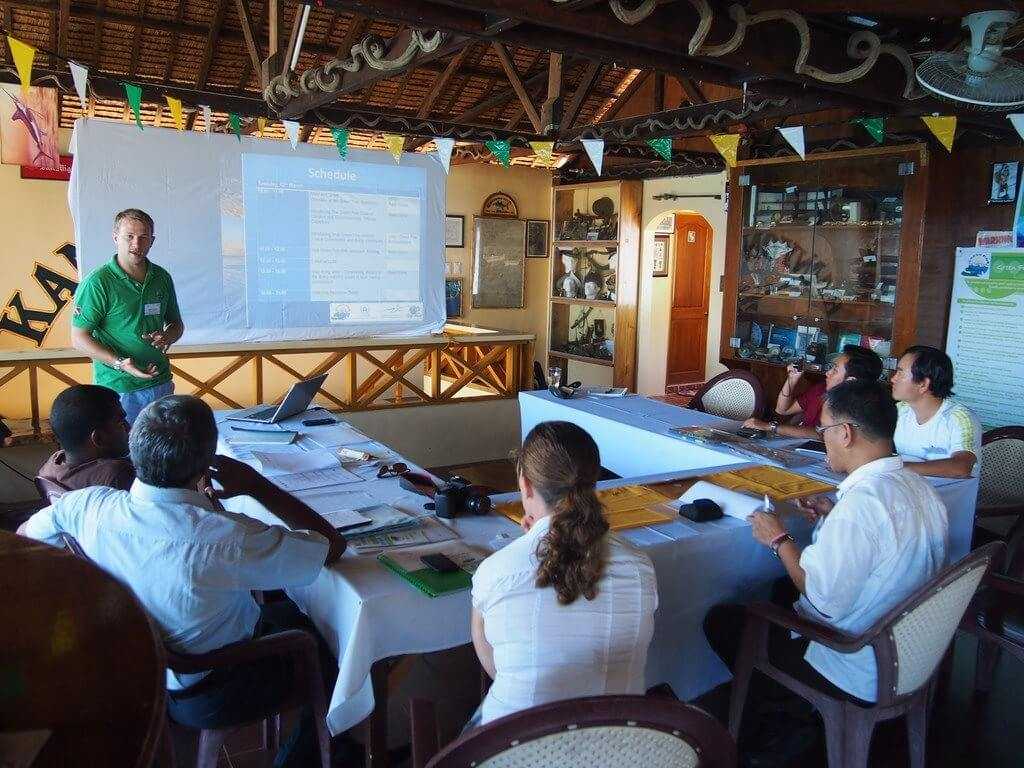
Threats to Coral Reefs
Coral reefs are ancient ecosystems, often described as rainforests of the sea - even though in terms of species biodiversity they far outweigh their terrestrial counterparts. They are highly sought after resources, for both fishing and recreation, with over 275 million people living within 30km of a coral reef ecosystem.
Coral reefs provide so much more than aesthetic value and fisheries resources: they provide coastal protection for 150,000 km of shoreline in over 100 countries; they are the mating, feeding, and breeding grounds for open ocean species; and they support ecosystem services provided by mangroves and seagrass.
Unfortunately, today’s coral reefs face an uncertain future. 75% of all reefs are currently threatened by a combination of global and local pressures.
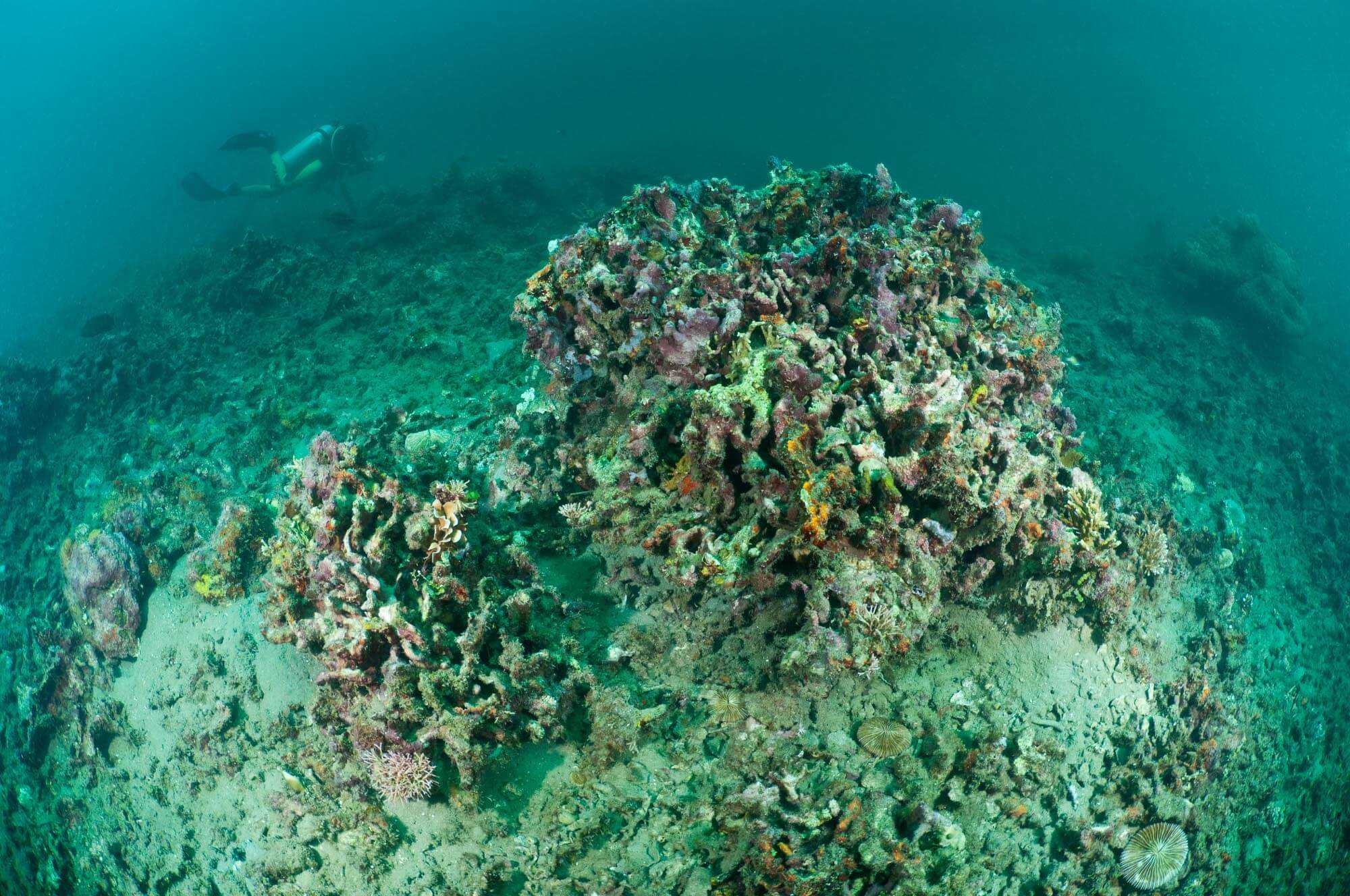
Climate Change
Rising carbon dioxide levels and other greenhouse gases have led to rising temperatures of the atmosphere and therefore in sea surface temperatures as well. This rise in temperature has two main effects on our coral reefs on top of compounding local threats.
- Thermal stress - "Mass coral bleaching, a stress response to an increase in water temperatures, has occurred in every region and is becoming more frequent as higher temperatures are becoming more common. Extreme bleaching events kill corals outright, while less extreme events can weaken corals, affecting their reproductive potential, reducing growth and calcification, and leaving them vulnerable to disease." (Reefs at Risk Revisited, 2011)
- Ocean acidification - "Rising levels of CO2 in the oceans are altering ocean chemistry and increasing the acidity of ocean water, reducing the saturation level of aragonite, a compound corals need to build their skeletons." (Reefs at Risk Revisited, 2011)
Local Problems
The most common local threats include:
- Overfishing
- Destructive fishing techniques (dynamite, cyanide, trawling, etc)
- Coastal Development, often from tourism
- Pollution from land run-off
- Divers damaging corals
All of these impacts are increasing as our population increases, with areas of the highest population growth rates coexisting in tropical areas where coral reefs exist. Currently more than 50% of the world’s population live within 100km of the coast and by the end of the decade this is expected to increase to more than 75%. This is of serious concern, considering that currently coastal ecosystems where coral reefs are found contribute 8% of the global GDP and open oceans contributing 25%. GDP.
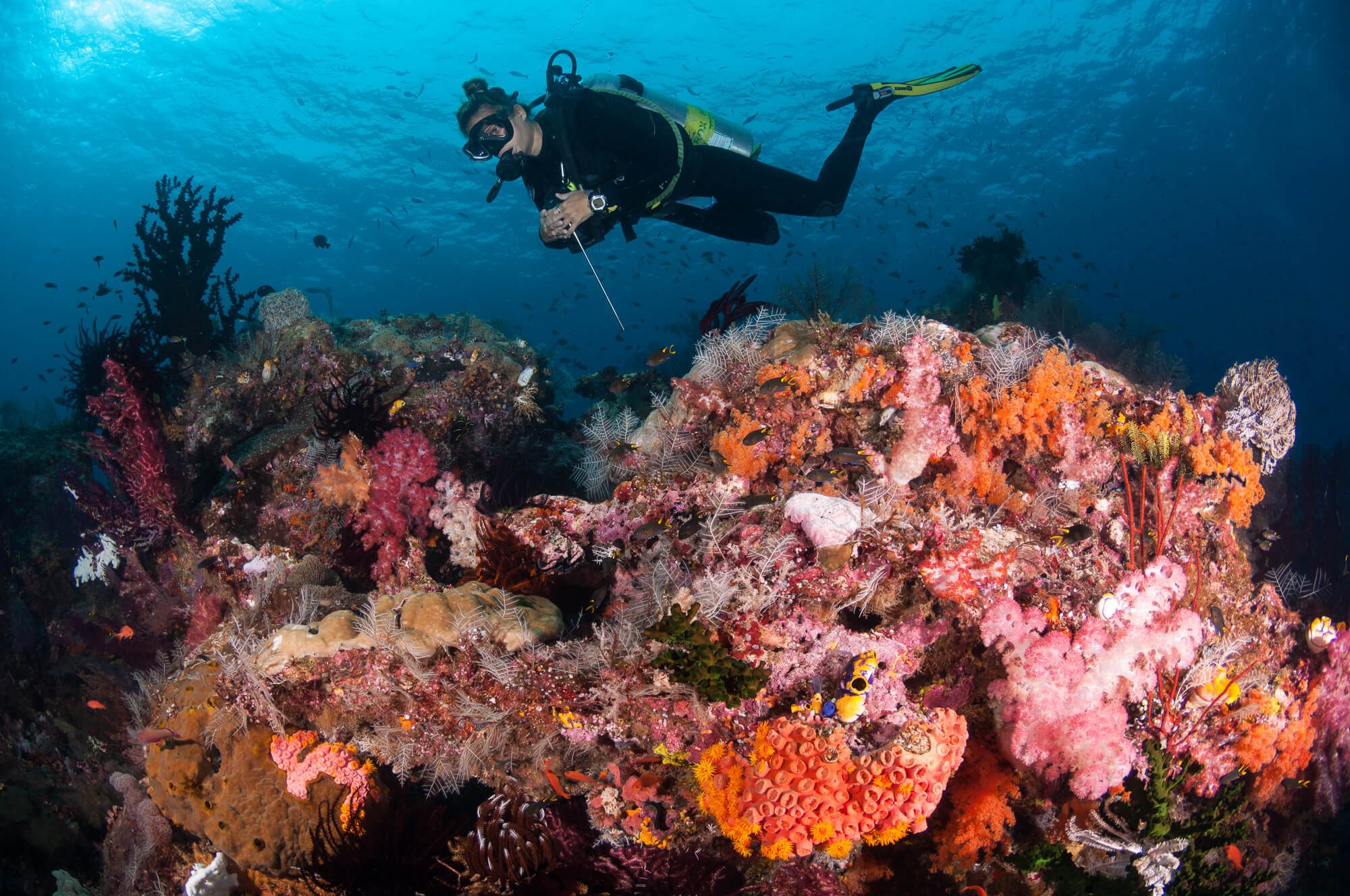
As underwater observers, divers and snorkellers are at the frontline of coral reef protection. They are the eyes and ears of the reefs and are usually the first to see the effects of these threats. They have the unique opportunity to champion reef protection by raising awareness about reef conservation, minimizing impacts from diving activities, to lead by example, and minimize any additional damage, allowing coral reefs to be more resilient to the larger scale threats but also coral diseases that are more likely to infect stressed corals.
Want to learn more?
- Complete the Green Fins Diver e-course - become a better diver, and get 5% off your next dive holiday booked with ZuBlu.
- Become a Green Fins Member - Dive, snorkel and liveaboard businesses worldwide can become Green Fins Members by registering on Green Fins Hub and pledging to follow the 15 environmental practices of the Green Fins Code of Conduct. For more information, head over to the Green Fins website.
- Resources - You can download some amazing resources from the Green Fins site, including posters, guides and promotional material. Visit Green Fins' downloads page.
- Donate - Your donation allows Reef-World to continue their hard work, engaging and working with local communities, governments and NGOs face to face. 100% of the donations go towards the work they are doing - your money makes real changes. Visit the Green Fins’ donation page.
